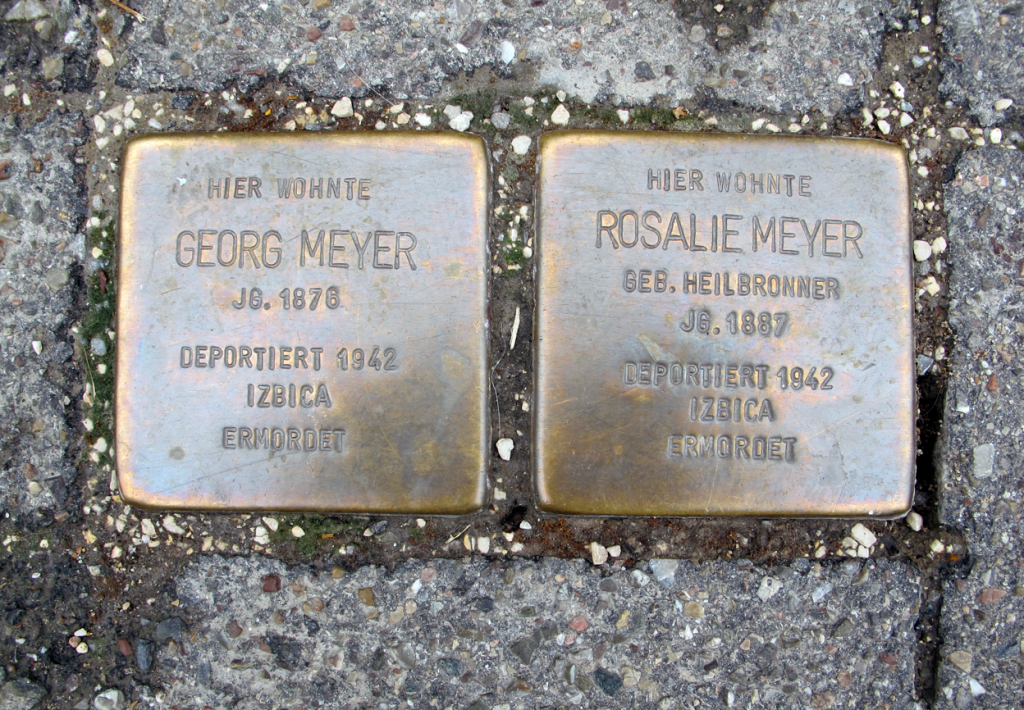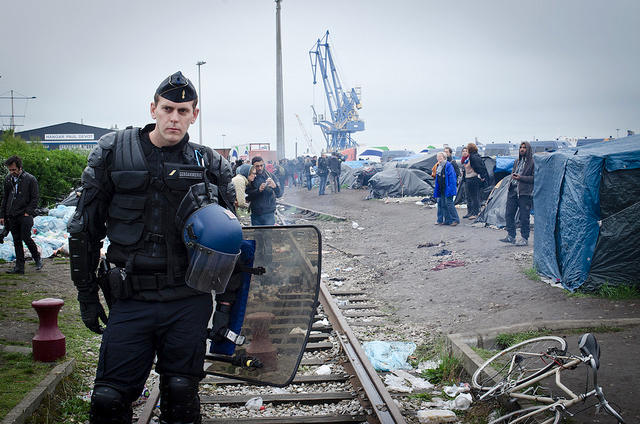As I approached the door of our apartment building, I noticed an elderly, apron-clad woman was sorting through our garbage. “Ein Auslander!” (“A foreigner”) she derisively exclaimed as she examined the label of an empty bottle of tahina. “Ein Auslander,” the woman repeated to herself, nodding her head as she sniffed its freshly scrubbed interior.
Hoping to enter the building without having to engage her, I tried to pass by quickly. No such luck. She immediately grabbed my arm, thrusting the empty bottle of tahina in my face. “Kein problem,” (“No problem”) I said to her with a nervous smile. Putting my recyclables in a different bin, she threw up her hands and walked away, angry.
When I related this incident to a German colleague the next day, he looked down at his feet, embarrassed. I’d been ambushed by a “garbage Nazi,” he informed me. A co-worker who was privy to the conversation chimed in. “They’re the worst.” Sensing their intense discomfort, I downplayed what had happened. “Don’t worry about it,” I told them both, “I’m just not used to spending much time thinking about my garbage.”
“Garbage Nazi” or so I have learned, refers to Germans who obsess about how to properly dispose of garbage and segregate their recycling. Not just any Germans – in Berlin, for example garbage is not taken seriously at all – but residents of wealthy, conservative southern cities such as Stuttgart, where this scene took place.
Although I was inclined to attribute my colleague’s comment to the Hollywood Nazi caricatures he had absorbed over the years, the “Ausländer” bit really did get under my skin. It demonstrated my neighbor’s overzealous commitment to recycling, not only cans and bottles, but the lame clichés of being a German. Not only did she equate my lack of garbage savoir-faire with my being a foreigner, there was something intensely voyeuristic – sensual, even – about her outrage. She relished reading the labels of my jars and smelling their insides because they were stand-ins for me. My failure to sort my refuse properly had given her the opportunity to peer directly into my private life.
Truth be told, in the six months we’d been renting our apartment, I’d only seen this stand-in for a Stasi agent once before. Based on the number of non-Germans living in our building – Japanese automotive executives, Spanish college students, US military personnel – I wager that she had been searching for a pretext to study what made us truly different. What she didn’t realize was that she was also betraying her own alienation in the process.
I can think of very few cities that better epitomize what an immigrant society Germany is becoming than Stuttgart. With some figures estimating the city’s foreign-born population to be 39%, which would make it the highest in the country percentage-wise, such invasive, complex ways of exploring my difference, as an outsider, shouldn’t be necessary. But old habits die hard, and my crotchety neighbor was more interested in labeling than learning.
And that’s a shame. The diversity of our building’s tenants is matched by the astonishing number of ethnic eateries in our neighborhood. A block away is a Turkish restaurant. Two blocks away is a Croatian place. Three blocks, you get Greek and Italian. Go four and you’ll arrive at a fabulous Vietnamese place. Five blocks away, there’s an outstanding Sri Lankan menu, even.
The week we moved in, one of the first things I noticed about our neighborhood was not its diversity, but the past. Not just any past, but that of the last century, of the Nazi era. Bending over to clean up after my dogs, I noticed that our youngest, Pixel, had pooped on a brass plaque bearing several Jewish names.
Taking a closer look, I realized that they were miniature tombstones, with dates of birth and death and the names of concentration camps in which each Jew had been killed. I made sure to wipe whatever refuse I could off the plaque, to dignify it, despite the fact that it’s something that is affixed to the ground, something that Germans walk on every day, something my own dog could shit on.
As the weeks passed, and I walked our dogs around the neighborhood, I discovered at least half a dozen similar commemorations. This part of Stuttgart clearly had a history of hosting “foreigners,” albeit the sort who had never known a home outside Europe. In a sense, I had stumbled into the ruins of a ghetto.
The day after my run-in with the “garbage Nazi,” I put my dogs in the back of my car, and began a three day drive to London. My first stop was a cheap motel in Chalon-sur-Saone, in eastern France, not far from the Swiss border. Waking up the next morning, I took breakfast in a tiny dining area full of French infantrymen and North African truckers.
The silence in the room was deafening. The only sound I could hear was that of the guests stirring their coffee, uncomfortably shifting back and forth in their seats. The soldiers kept their eyes nervously trained on the truck drivers, gripping their butter knives as though they were weapons. The North Africans returned their stare in kind.
Getting back on the highway, my mobile rang. It was my father, calling me from Israel. After I’d told him about the tension at breakfast, he remarked that, “For many French that era (the Algerian war) will never be over.” Appreciating the nuance of his statement, his careful choice of words, I thought back to Stuttgart, wondering if the same rules applied.
Clearly, the impulse to learn about the outsiders by searching through their garbage doesn’t inspire much hope. Perhaps if I give up trying to satisfy local standards, and put something really awful in my garbage, I’ll manage to break my neighbors of the habit, and make them really talk to me. Anything has to be better than having them look for me in the trash.
Photograph by Joel Schalit






I’m sorry to say I have very little sympathy, as I am of the mind that Germany would be better of without the influx of foreigners overrunning the country. Although I myself am not a German, either by by birth or national origin, I lived there between 1967 and 1978, before the Third World and eastern European “invasion.” Of course I’ve often been accused of being a Nazi. However I have been a lifelong admirer of all things German, and would have liked to have seen Germany remain unspoiled buy the above mentioned groups of “invaders.” This was, of course, an impossibility due to the overwhelming U.S. military & cultural presence in place since 1945. However, I feel just as strongly about the situation facing my own country, Australia, which is under serious threat from Middle Eastern & other Third wWrlders, many of whom are simply “economic refugees” as opposed to the genuine article.
The nation state, as an ethnically and culturally homogeneous entity, has always been a fiction. If you were a minority, this would be more obvious. This has always been the case, both before 1945, as well as after.